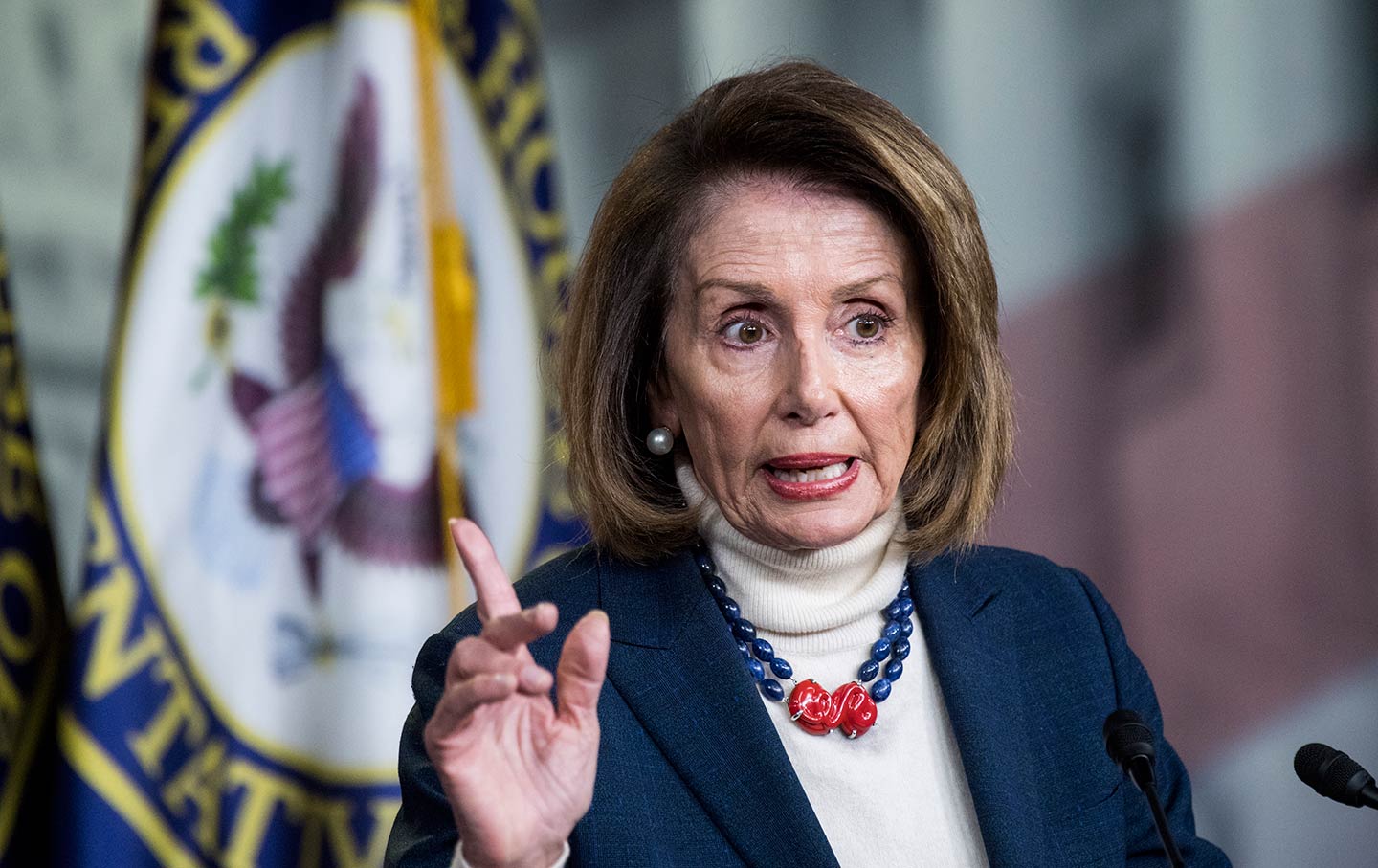
House Speaker Nancy Pelosi.(Bill Clark / CQ Roll Call)
After keeping the world in suspense for these past few weeks, it now appears that House Speaker Nancy Pelosi will visit Taiwan while on her trip to Asia. But even if she’d chosen not to go, as advised by President Biden and top US military officers, the very talk of such a trip at this critical moment has caused significant damage to US-China relations and increased the risk of a military clash. It is essential, then, that leaders of both China and the United States exercise caution in responding to her disruptive behavior, and avoid any actions that might provoke an armed encounter.
To put this in perspective, US-China tensions over Taiwan were already on the rise before Pelosi announced her trip, a consequence of intersecting pressures from all three countries. Taiwanese authorities have been increasingly assertive in stressing Taipei’s autonomy—if not outright independence—from the mainland, provoking strong condemnation from Chinese leaders and ever more blatant threats of military action. This, in turn, has aroused increased anti-China animus in Washington, along with growing calls to replace the current policy of “strategic ambiguity”—which leaves undetermined whether the US will intervene under such circumstances—with an ironclad commitment to defend Taiwan if China does mount an invasion. President Biden, while insisting there’s been no change in policy, has added momentum to such calls by repeatedly saying the US has a “commitment” to defend Taiwan. Needless to say, these pronouncements by Washington have only added to the outrage in Beijing, prompting top leaders there to warn of dire consequences if the US does interfere in what they describe as China’s internal affairs.
These intersecting tensions were already brewing in April, when Pelosi was originally scheduled to travel to Asia but had to cancel after testing positive for Covid; they are much worse now. In the intervening months, both sides have issued increasingly threatening statements about the Taiwan situation and have mounted regular military maneuvers around the island that suggest an intent to employ force if deemed necessary. China’s air force, for example, has been conducting near-daily incursions into Taiwan’s air-defense identification zone, prompting the scrambling of Taiwanese fighter jets and a precarious aerial ballet; meanwhile, the US Navy has been undertaking regular transits by US warships through the 90-mile wide Taiwan Strait, prompting a similar response by Chinese military forces.
Adding to the tensions at this particular moment is the upcoming Chinese Communist Party (CCP) leadership conclave at Beidaihe, a beach resort east of Beijing. Every summer, senior party officials meet at Beidaihe to discuss CCP policies and distribute top leadership positions. This year’s conclave is especially sensitive, as President Xi Jinping is expected to ask his associates to support his bid for an unprecedented third five-year term as president and party secretary—a step that Xi hopes to see formalized at the National Party Congress in November.
Many Western analysts believe that Xi, who has sought to project an image of unsurpassed power and competence, could be subjected to criticism at the secretive Beidaihe session for mishandling the current stage of the Covid crisis and thereby allow China’s economic growth to falter—a situation, CCP leaders presumably fear, that could lead to popular unrest and dangerous anti-party mobilizations. Anything that might make Xi look weak or indecisive—such as a dramatic appearance in Taipei by Speaker Pelosi—could, therefore, be viewed by his colleagues as a serious threat to his reappointment bid. Accordingly, he may be inclined to seize on such a provocation to demonstrate his authority by ordering a dramatic show of military force, such as the deployment of Chinese warplanes over Taiwanese territory or artillery strikes on Taiwanese-held islands close to the Chinese coast.
The US military has affirmed that it is capable of protecting Pelosi’s flights in and out of Taiwan should she proceed with a visit there. “If there’s a decision made that Speaker Pelosi or anyone else is going to travel [to Taiwan]…we will do what is necessary to ensure a safe conduct of their visit,” avowed Gen. Mark Milley, Chairman of the Joint Chiefs of Staff, in late July. Milley didn’t say so, but the Navy has moved the Ronald Reagan Strike Group, with the Reagan aircraft carrier and accompanying warships and submarines, into the South China Sea—close enough to provide military support if called upon to do so.
Clearly, then, all the ingredients for a major military clash are now in place around Taiwan: ample US, Chinese, and Taiwanese forces, along with a high level of regional tensions and a possible spark—Pelosi’s visit. If Pelosi cannot be dissuaded from traveling to the island, US, Chinese, and Taiwanese military officials must demonstrate a higher level of prudence and responsibility, by refraining from any military moves that are likely to provoke a harsh reaction from one or more of the other actors and result in armed conflict. And, once this immediate crisis has passed—and let us hope it passes without a major incident—US and Chinese officials need to meet and discuss means for reducing the risk of war over Taiwan and seek ways to better cooperate on vital issues, such as climate change, the global economy, and pandemic prevention.
Michael T. KlareTwitterMichael T. Klare, The Nation’s defense correspondent, is professor emeritus of peace and world-security studies at Hampshire College and senior visiting fellow at the Arms Control Association in Washington, D.C. Most recently, he is the author of All Hell Breaking Loose: The Pentagon’s Perspective on Climate Change.